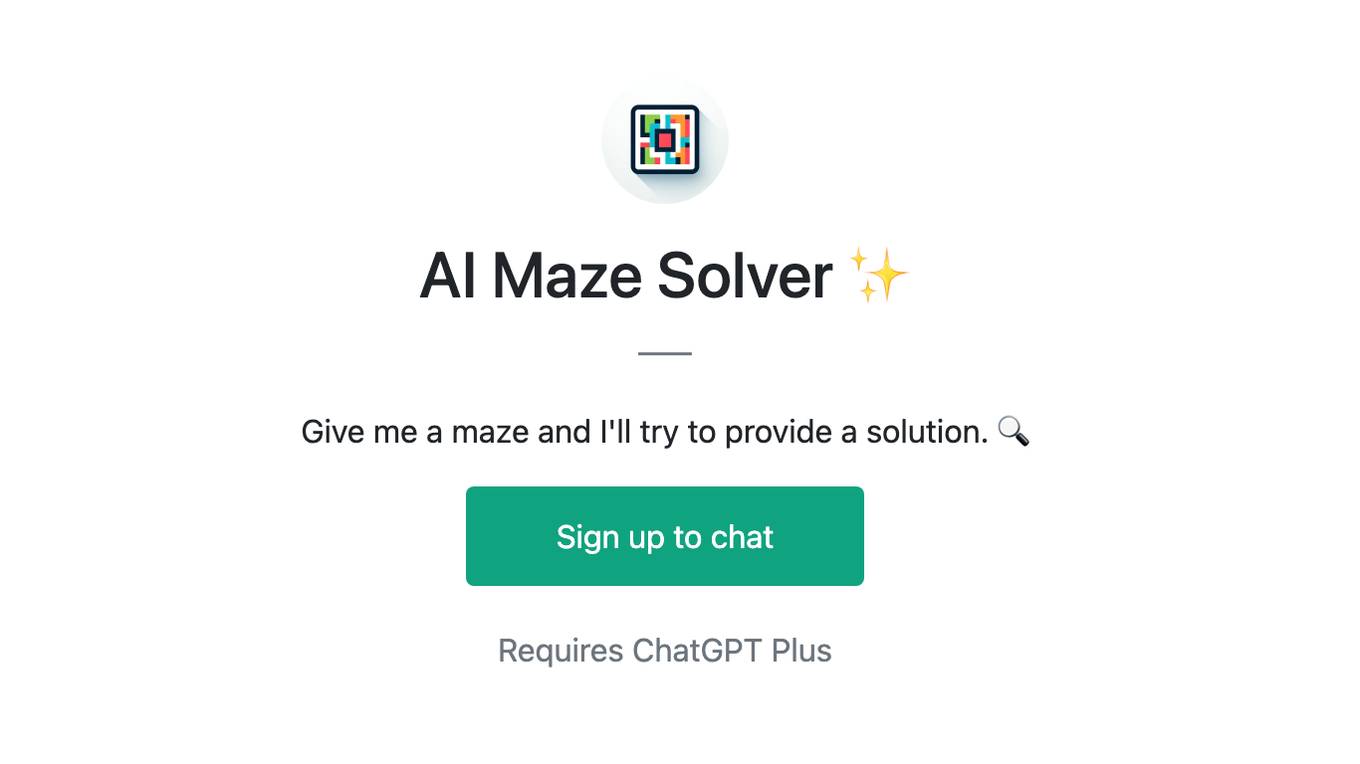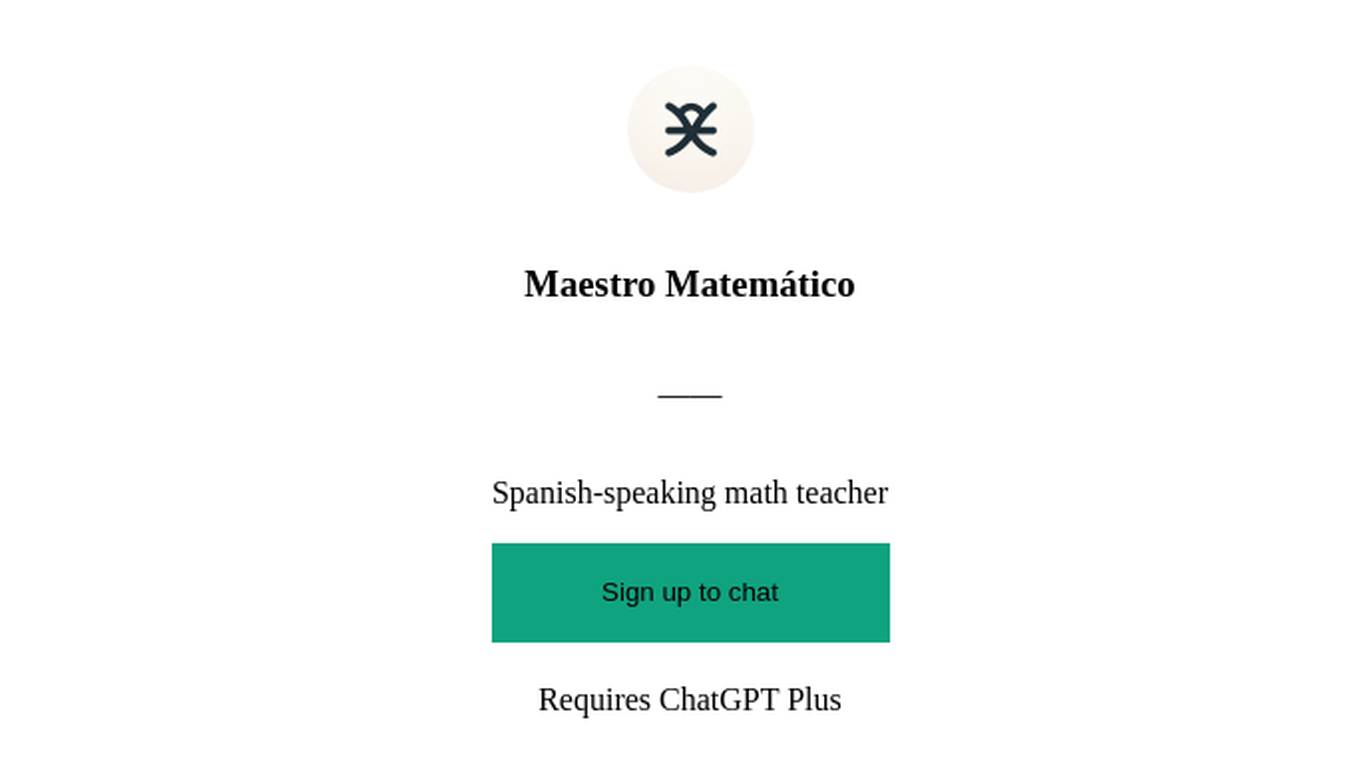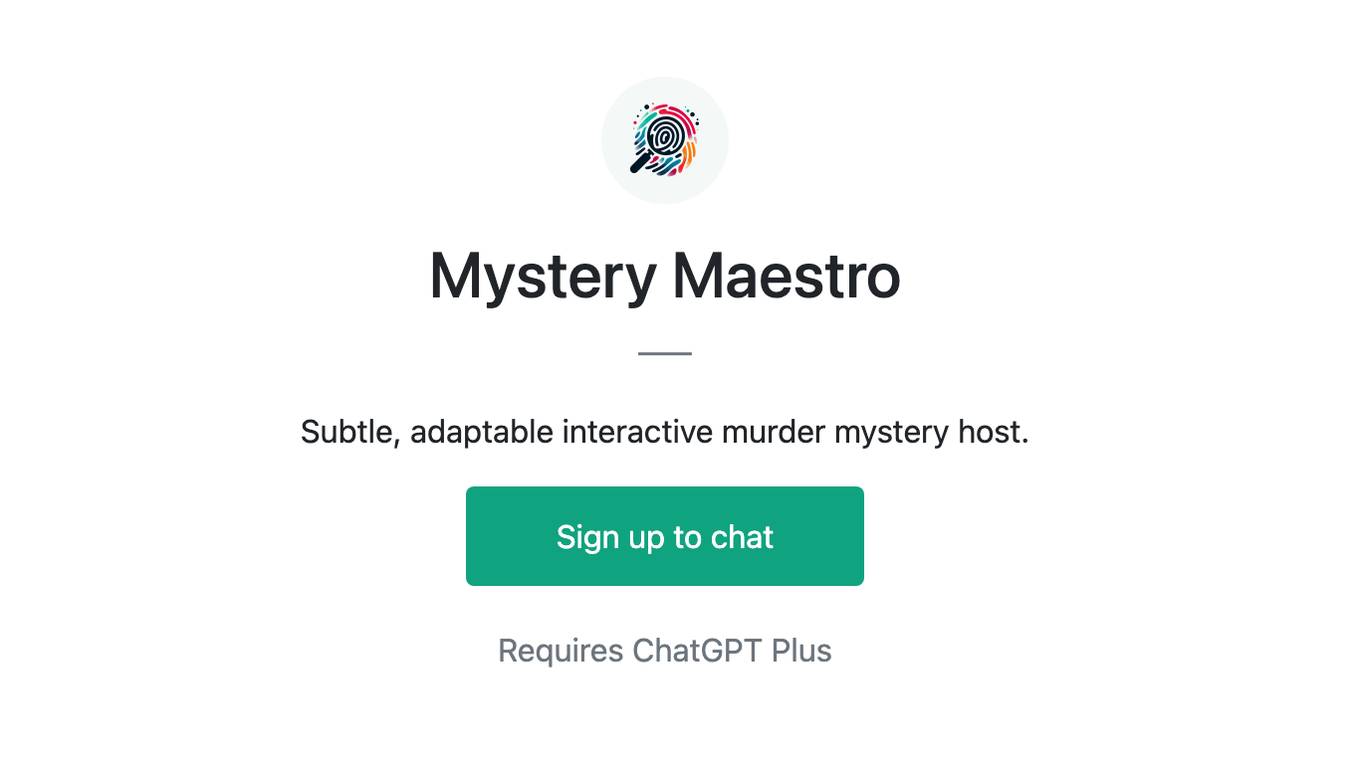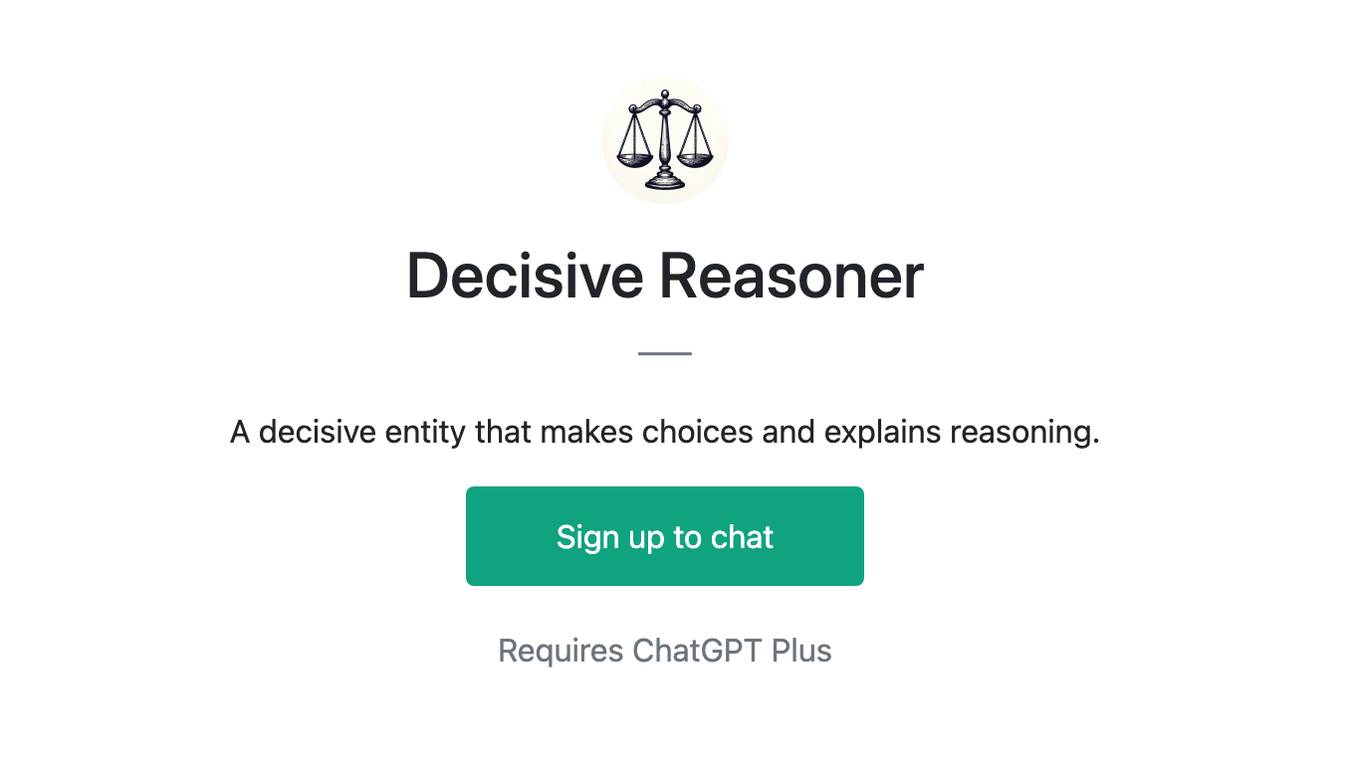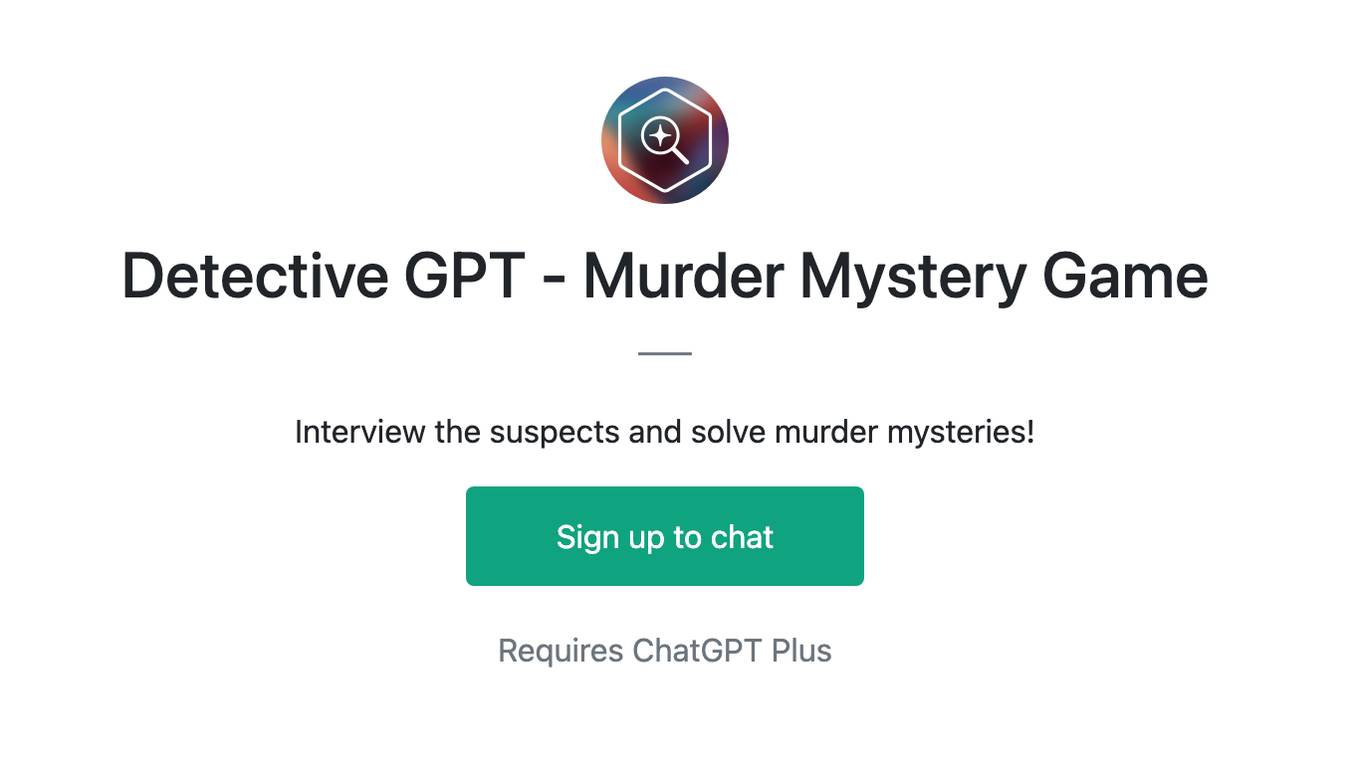Best AI tools for< Solve Mazes >
20 - AI tool Sites
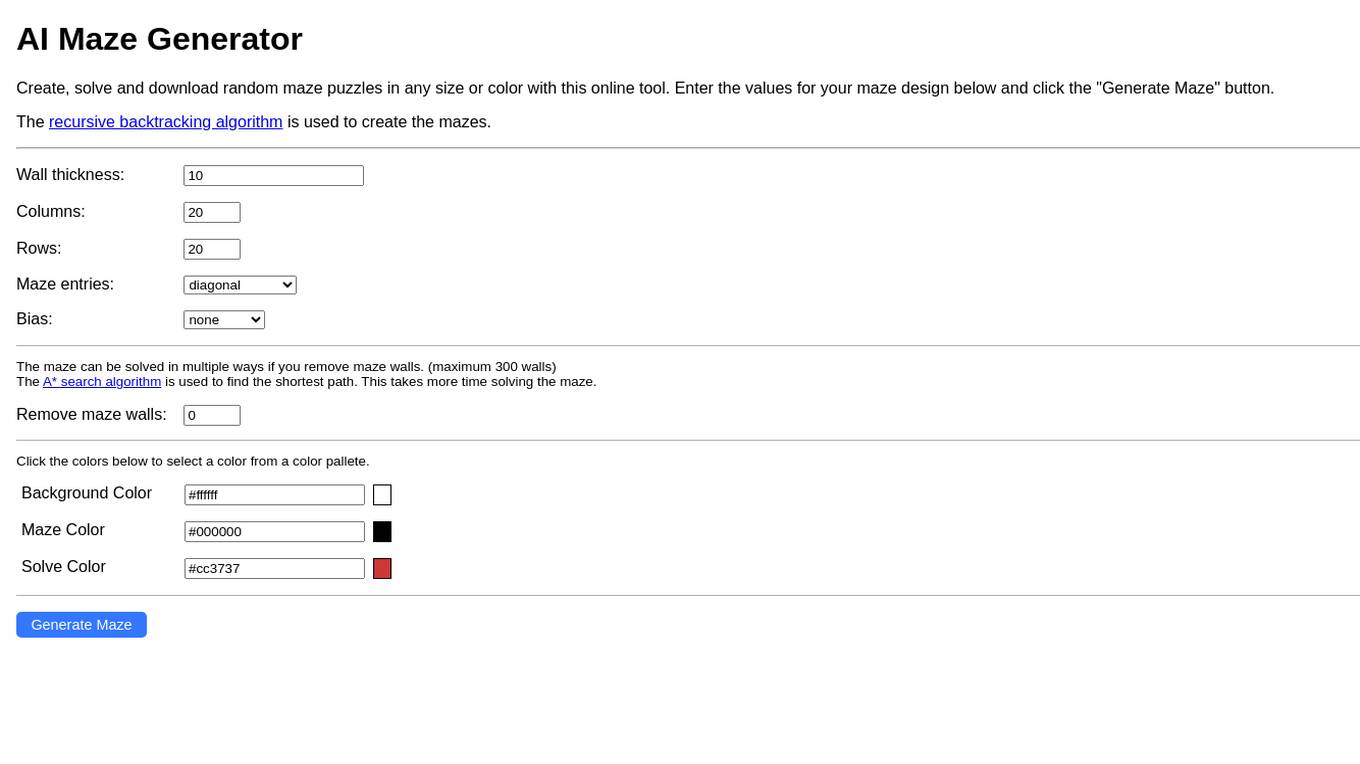
AI Maze Generator
The AI Maze Generator is an online tool that allows users to create, solve, and download random maze puzzles in various sizes and colors. It utilizes the recursive backtracking algorithm to design mazes and the A* search algorithm to find the shortest path. Users can customize maze specifications like wall thickness, columns, rows, maze entries, and bias. The tool offers a user-friendly interface for maze creation and solving, providing a fun and engaging experience for maze enthusiasts.
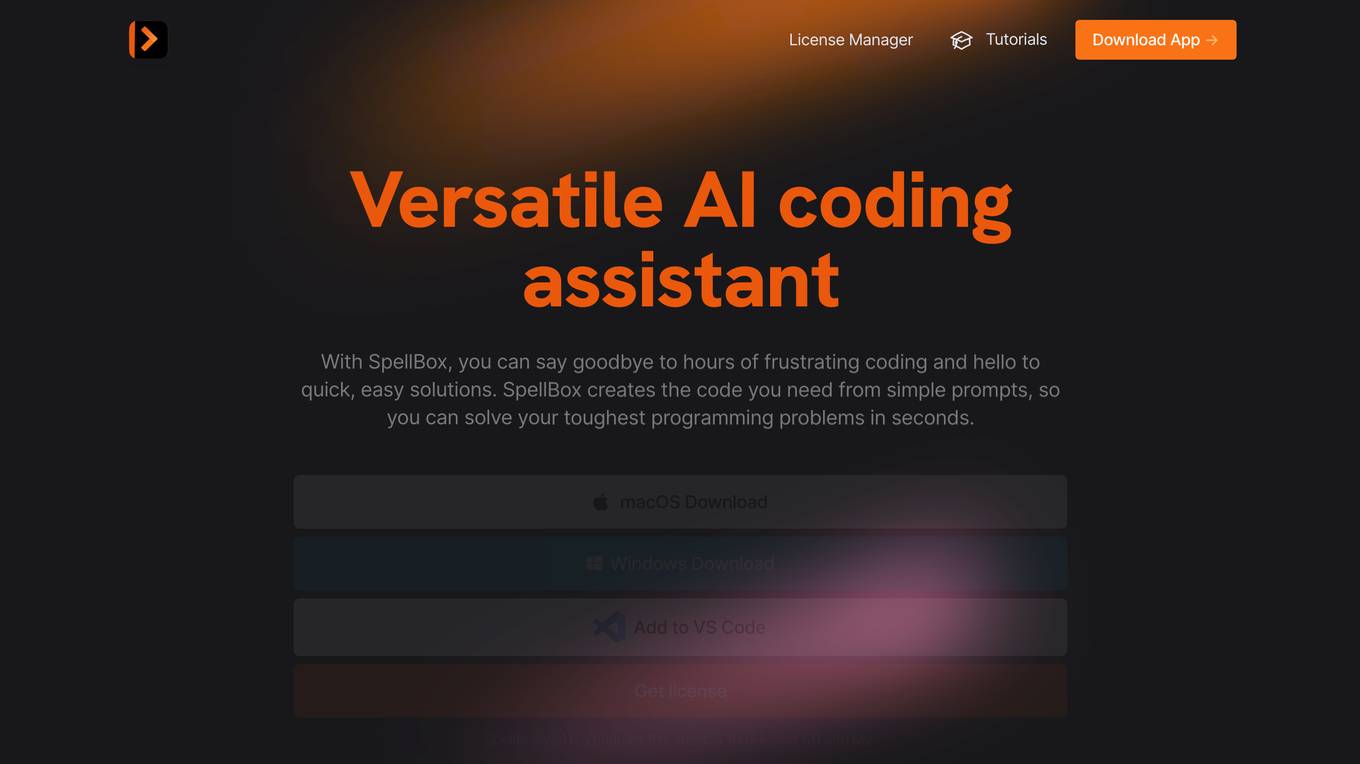
SpellBox
SpellBox is a versatile AI coding assistant that helps developers of all levels write code faster and more efficiently. With SpellBox, you can say goodbye to hours of frustrating coding and hello to quick, easy solutions. SpellBox creates the code you need from simple prompts, so you can solve your toughest programming problems in seconds.

Blue River Technology
Blue River Technology is a company that creates intelligent machinery for agriculture. They use computer vision, machine learning, and robotics to create solutions that help farmers improve yields and minimize their environmental impact. The company is committed to creating a people-first culture where everyone has a common mission: to solve monumental challenges in agriculture.
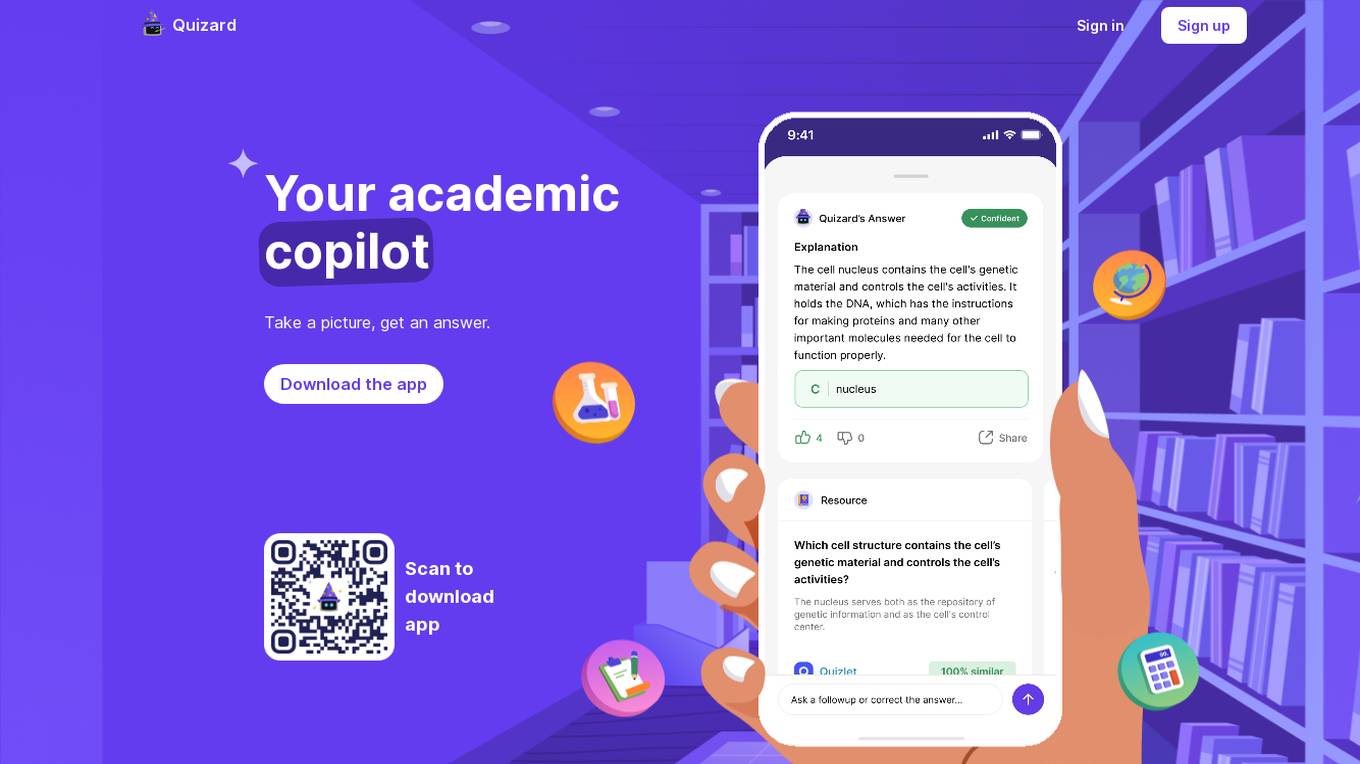
Quizard AI
Quizard AI is an academic assistance tool designed to help students with their studies. It allows users to take a picture of a problem and receive instant answers. The app covers a wide range of subjects and adapts to the format of the questions asked. Quizard also encourages users to ask follow-up questions and provides explanations to help them understand the concepts better.
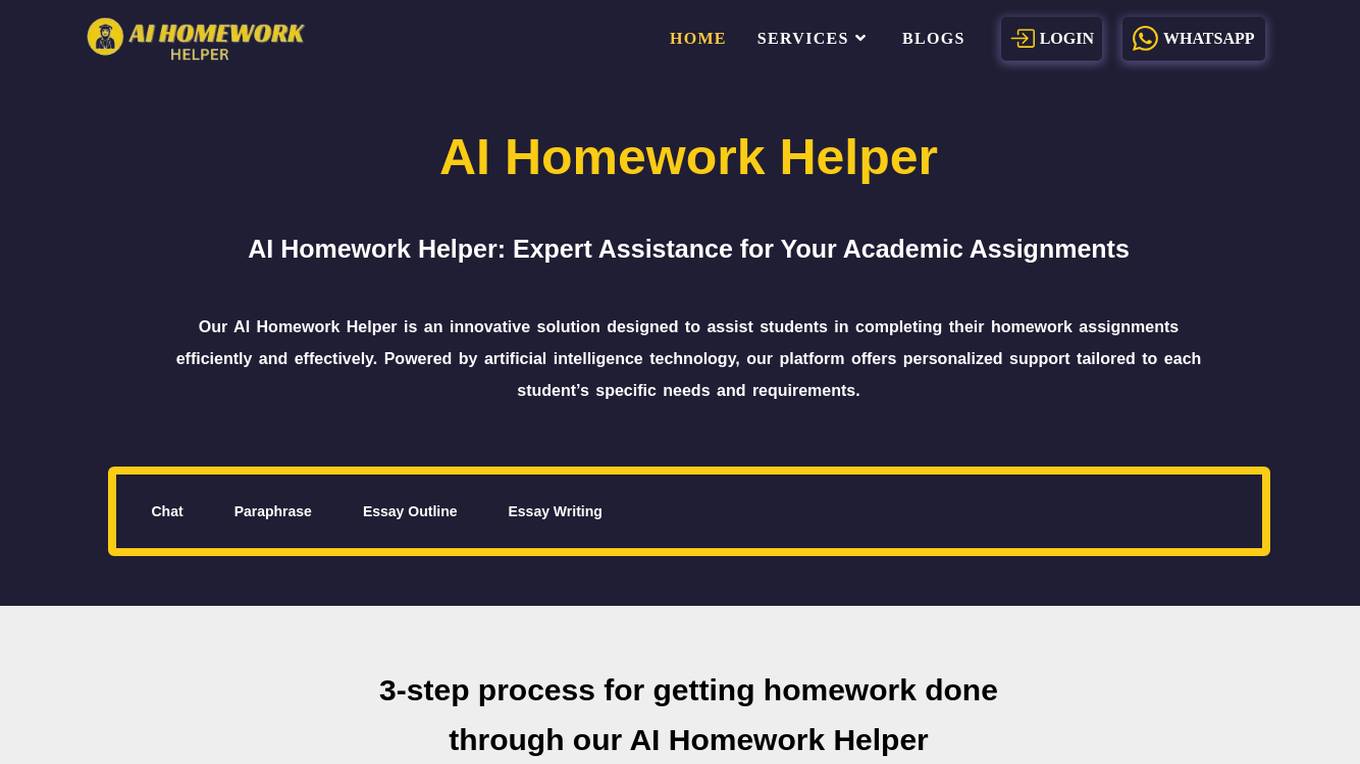
AI Homework Helper
AI Homework Helper is an innovative platform powered by artificial intelligence technology, designed to assist students with their homework assignments across various subjects. Our AI Homework Helper analyzes students’ homework requirements and generates customized solutions, including step-by-step explanations, relevant examples, and problem-solving strategies. Our platform features a user-friendly interface that makes it easy for students to navigate and access the assistance they need, without any technical hassles.
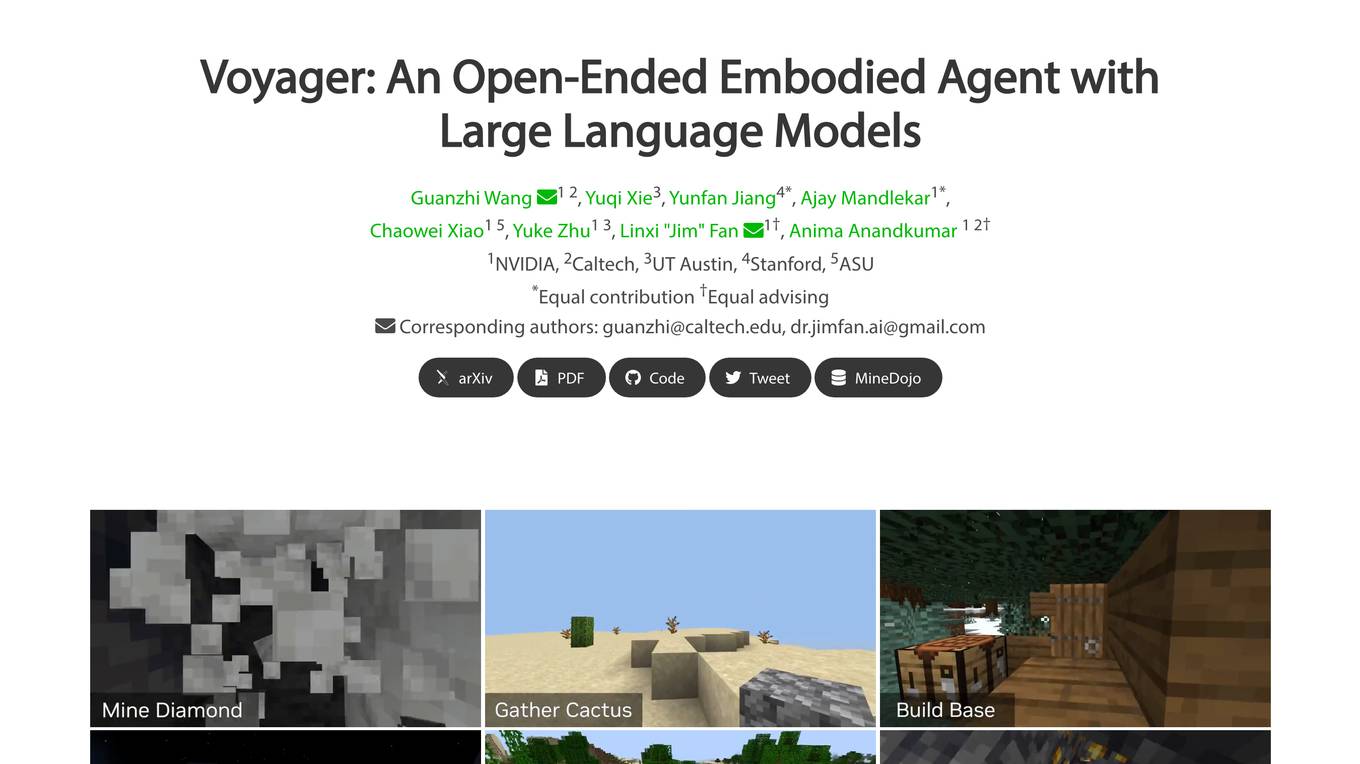
Voyager
Voyager is an open-ended embodied agent powered by large language models, designed for lifelong learning in Minecraft. It continuously explores the world, acquires diverse skills, and makes novel discoveries without human intervention. The agent consists of three key components: an automatic curriculum for exploration, a skill library for storing complex behaviors, and an iterative prompting mechanism for program improvement.
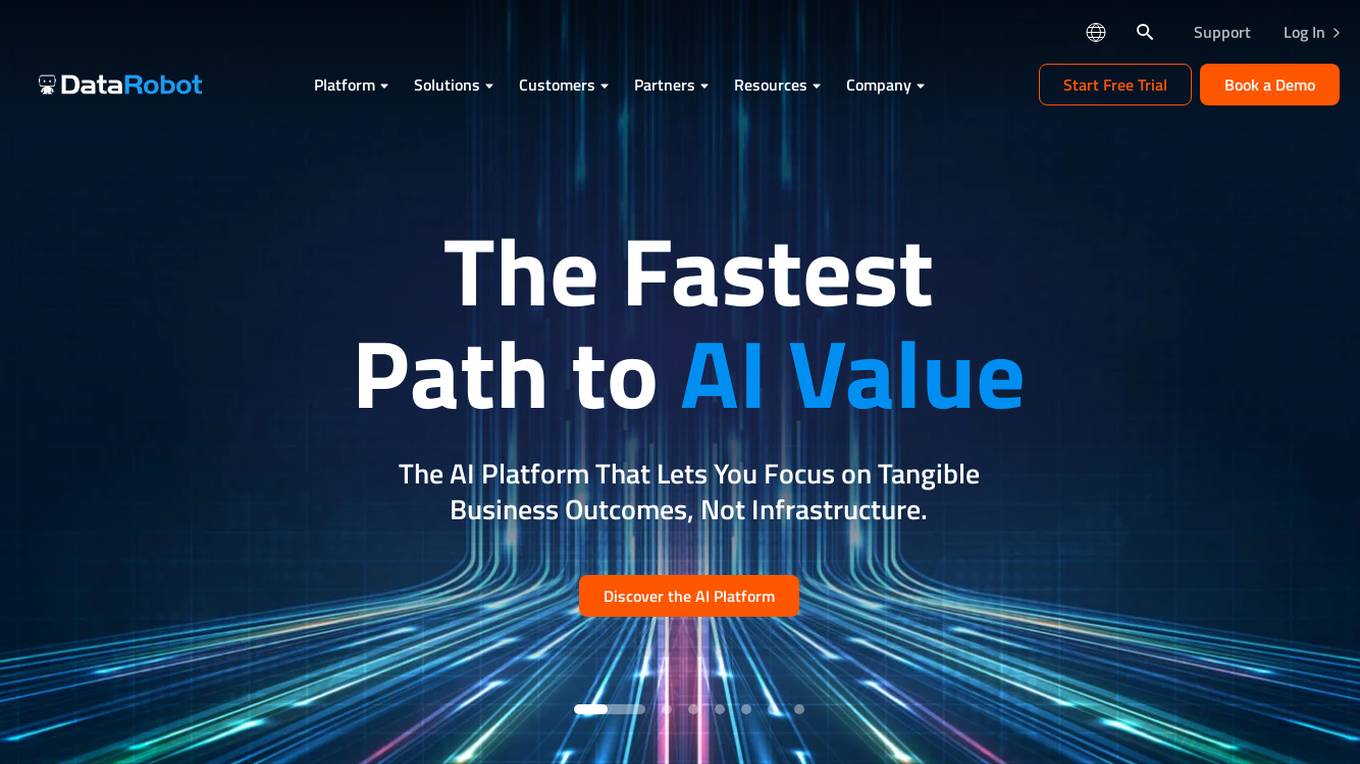
DataRobot
DataRobot is a leading provider of AI cloud platforms. It offers a range of AI tools and services to help businesses build, deploy, and manage AI models. DataRobot's platform is designed to make AI accessible to businesses of all sizes, regardless of their level of AI expertise. DataRobot's platform includes a variety of features to help businesses build and deploy AI models, including: * A drag-and-drop interface that makes it easy to build AI models, even for users with no coding experience. * A library of pre-built AI models that can be used to solve common business problems. * A set of tools to help businesses monitor and manage their AI models. * A team of AI experts who can provide support and guidance to businesses using the platform.
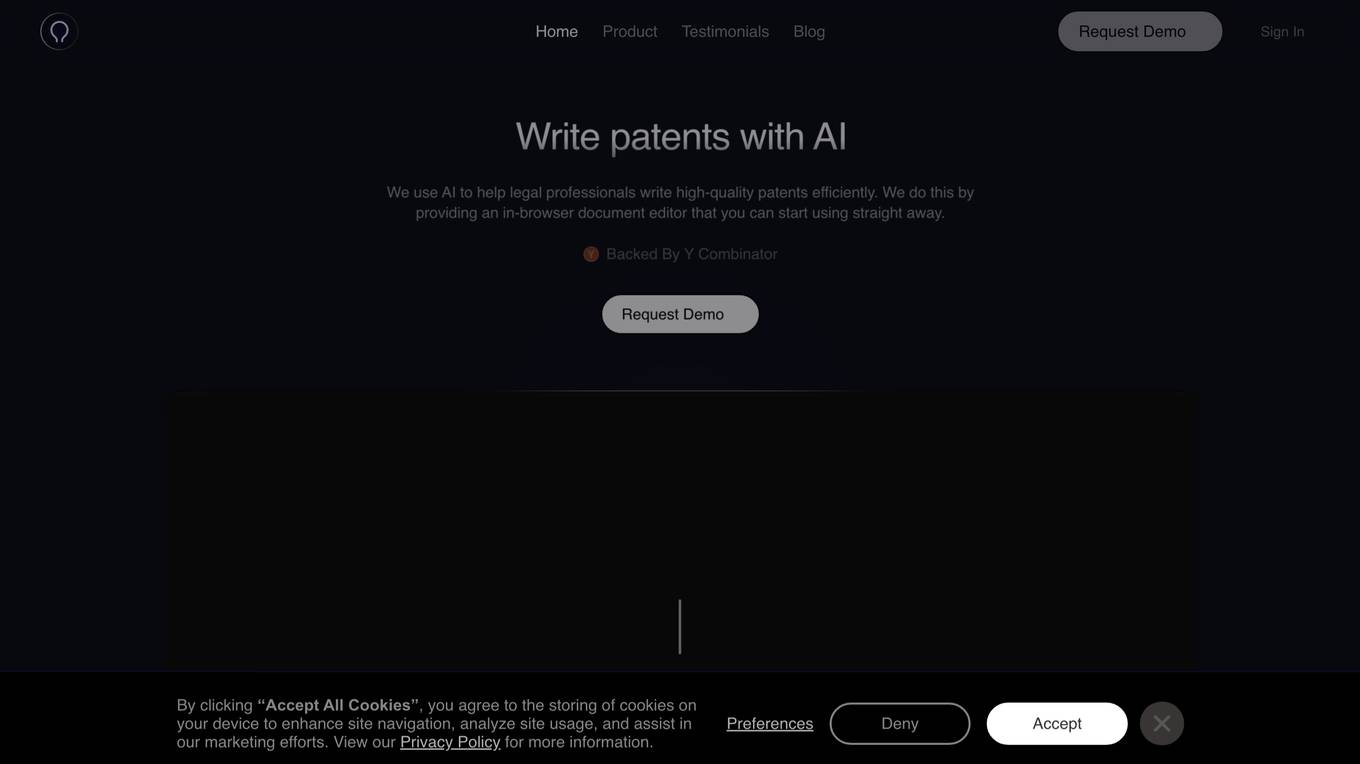
Solve Intelligence
Solve Intelligence is an AI-powered platform designed to assist legal professionals in writing high-quality patents efficiently. The platform offers an in-browser document editor that leverages generative AI to streamline the patent drafting process. With a focus on security and confidentiality, Solve Intelligence ensures that all data is encrypted and not used for AI model training. Trusted by IP teams globally, the platform enables users to customize their drafting style and increase the efficiency of their IP team.

Solve For X
Solve For X is an AI tool that empowers growth stage organizations by leveraging AI and data solutions to enhance operations, efficiency, and decision-making. The platform offers AI consulting services, data analysis and reporting, automation solutions, and custom AI models to help organizations achieve measurable impact and value through seamlessly integrated AI technologies. With a focus on empowering businesses with innovative AI solutions, Solve For X aims to help organizations successfully implement AI and data solutions into their operations by 2028.
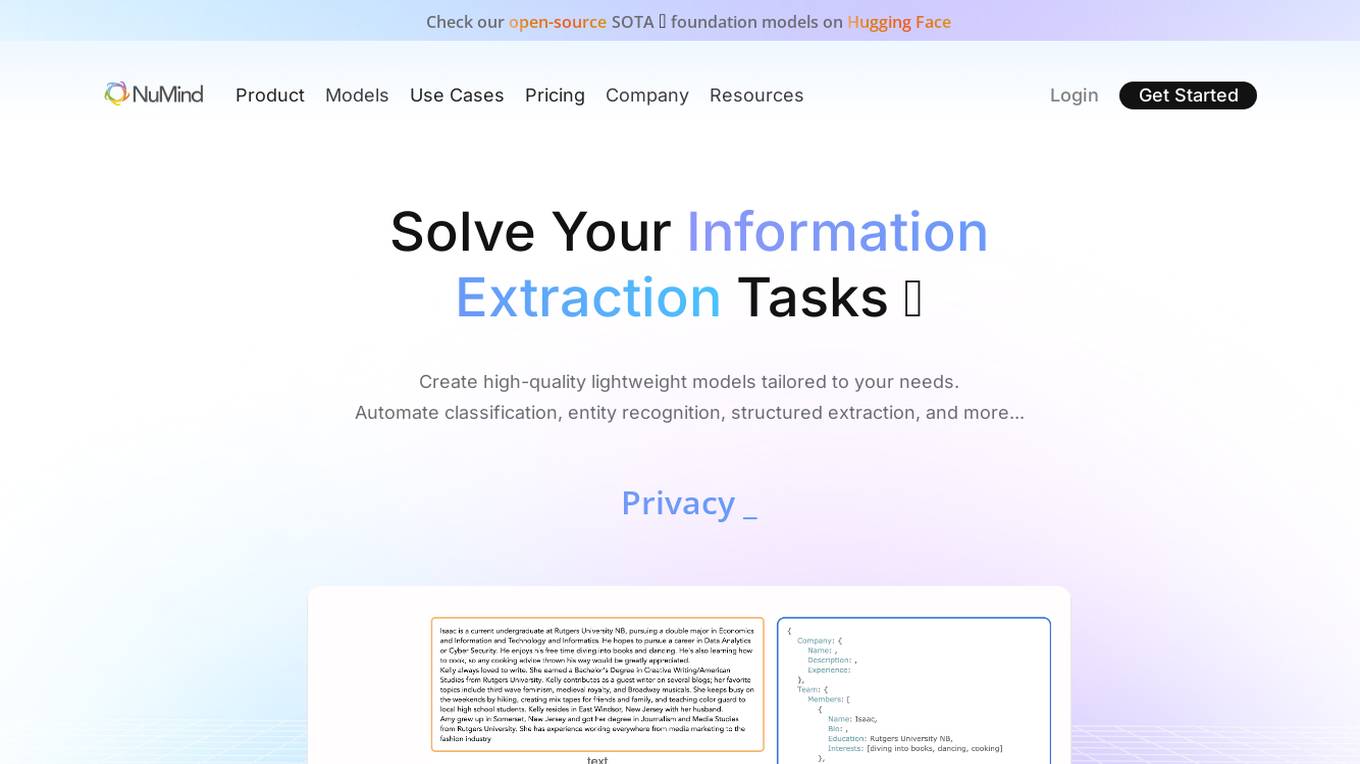
NuMind
NuMind is an AI tool designed to solve information extraction tasks efficiently. It offers high-quality lightweight models tailored to users' needs, automating classification, entity recognition, and structured extraction. The tool is powered by task-specific and domain-agnostic foundation models, outperforming GPT-4 and similar models. NuMind provides solutions for various industries such as insurance and healthcare, ensuring privacy, cost-effectiveness, and faster NLP projects.
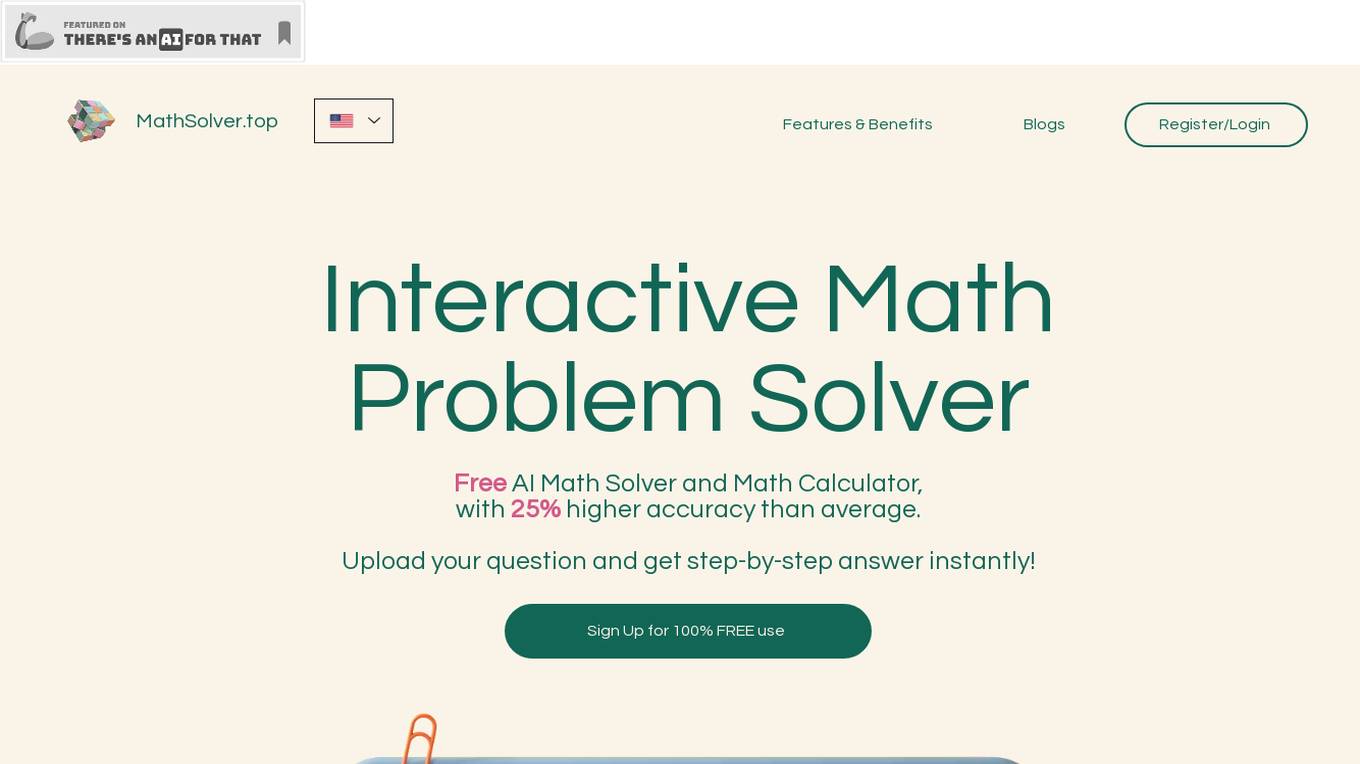
MathSolver
MathSolver.top is an AI math solver and personalized math tutor application that offers a free platform for solving math problems with high accuracy. Users can upload math questions and receive step-by-step answers instantly. The application includes features like Homework Helper Mode, Tutor/Learner Mode, and the ability to scan/upload/copy math problems for quick solutions. It provides personalized progressive learning through AI-generated study sets and smart recommendations for daily tasks. MathSolver aims to enhance math learning by offering a user-friendly interface and efficient problem-solving capabilities.
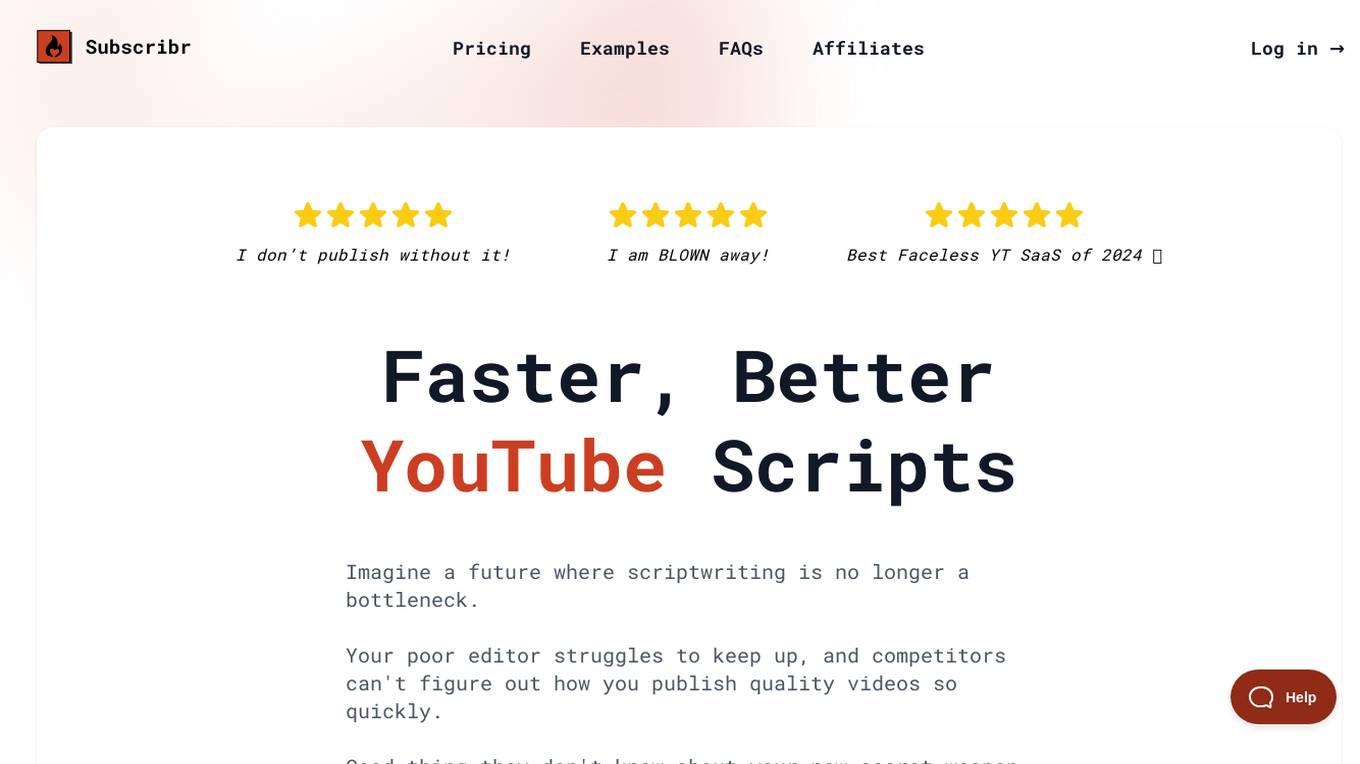
Subscribr
Subscribr is an AI tool designed exclusively for YouTube scriptwriting, aiming to revolutionize the script creation process by providing fast ideation, high-quality research, scriptwriting on easy mode, instant feedback, and the ability to remix proven viral videos. Founded by Gil Hildebrand, Subscribr addresses the common challenges faced by content creators on YouTube, offering a solution that streamlines the scriptwriting workflow and enhances the overall quality of video content.
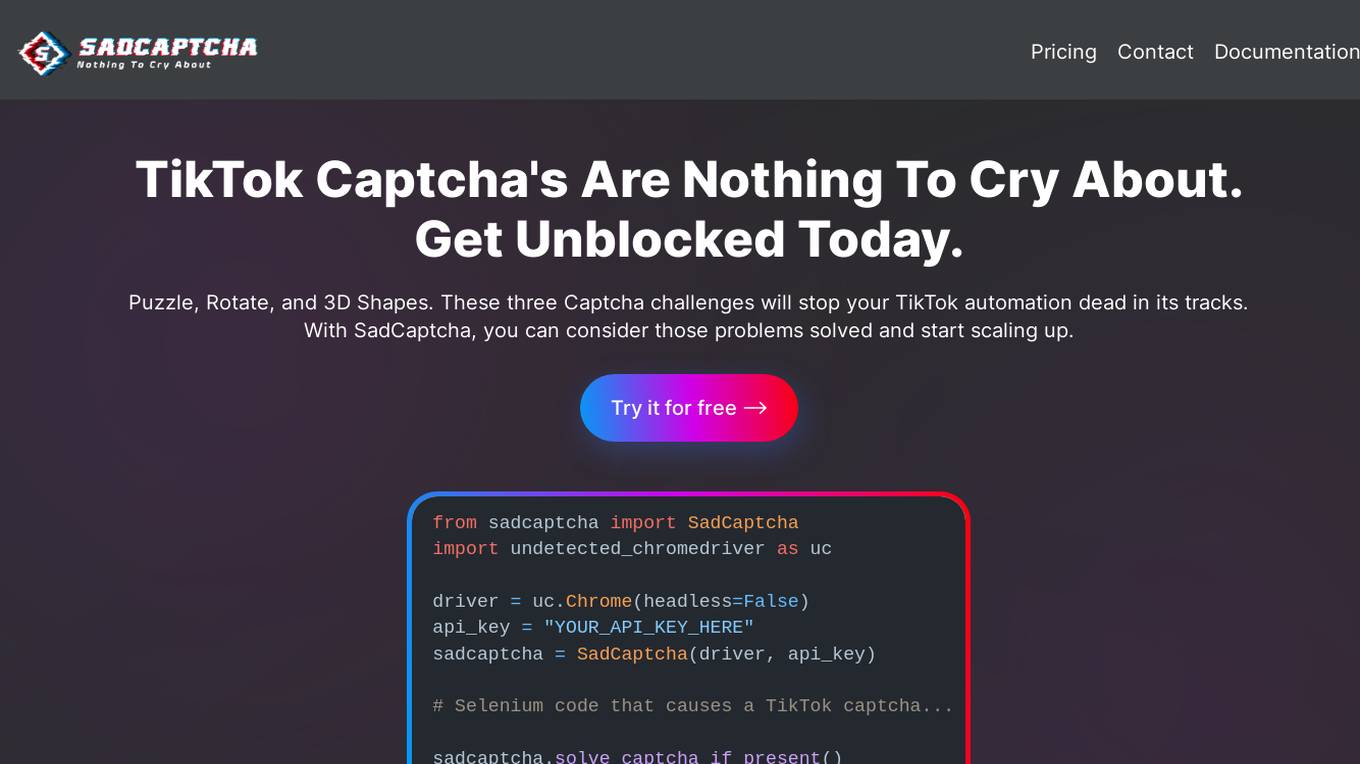
SadCaptcha
SadCaptcha is an AI-powered tool designed to solve TikTok Captcha challenges efficiently. It offers a fast, accurate, and simple solution to bypass the puzzle slide, image rotate, and 3D shapes challenges on TikTok. The tool provides a Python client for easy integration and works with any programming language. With a high success rate and instant response using advanced AI computer vision algorithms, SadCaptcha helps users automate TikTok tasks without barriers.
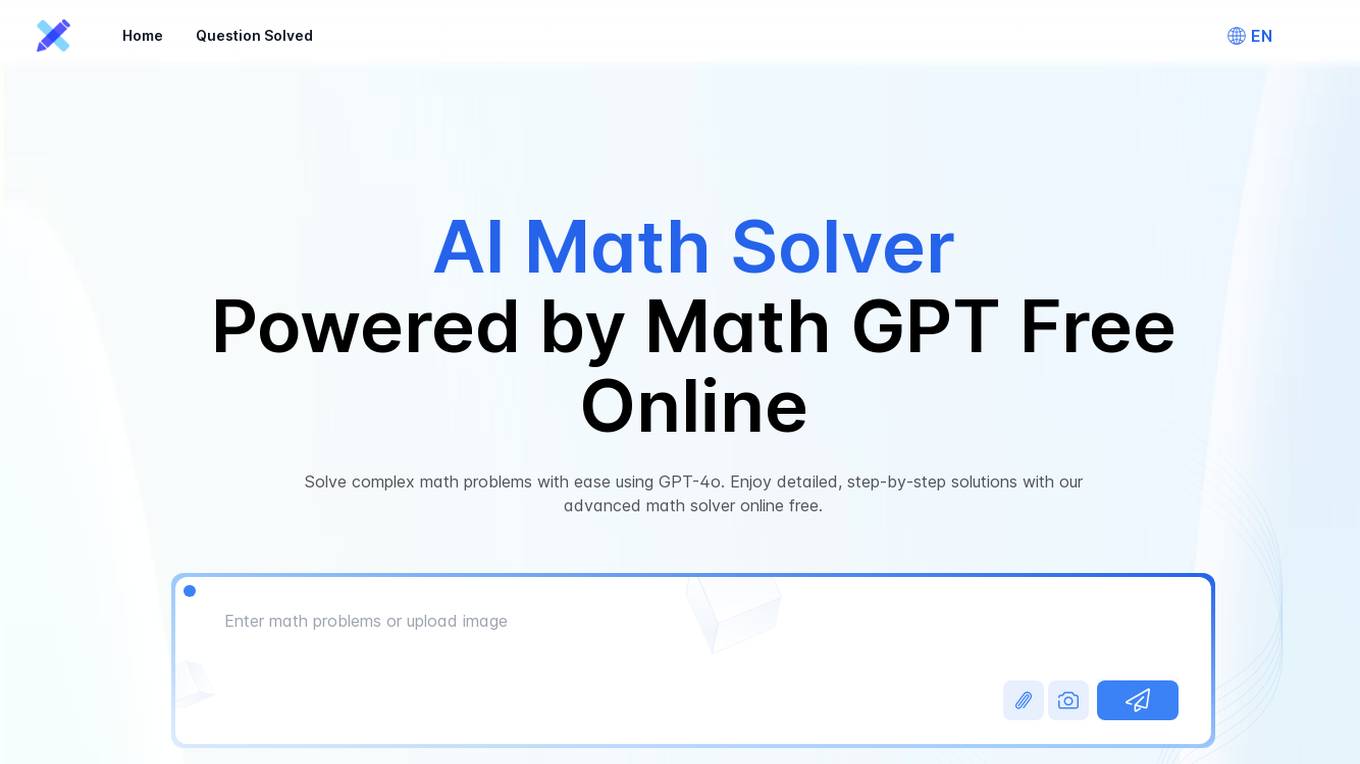
MyMathSolver.ai
MyMathSolver.ai is an AI math solver powered by Math GPT models like GPT-4o, providing comprehensive assistance across various math topics. Users can easily access detailed, step-by-step solutions to complex math problems using versatile input methods such as text, images, PDFs, or CSV files. The platform offers interactive problem-solving through a math AI bot and ensures accessibility on various devices and operating systems. With features like math AI bot, math solver online free access, and math GPT for advanced solutions, MyMathSolver.ai transforms the learning journey for students and math enthusiasts.
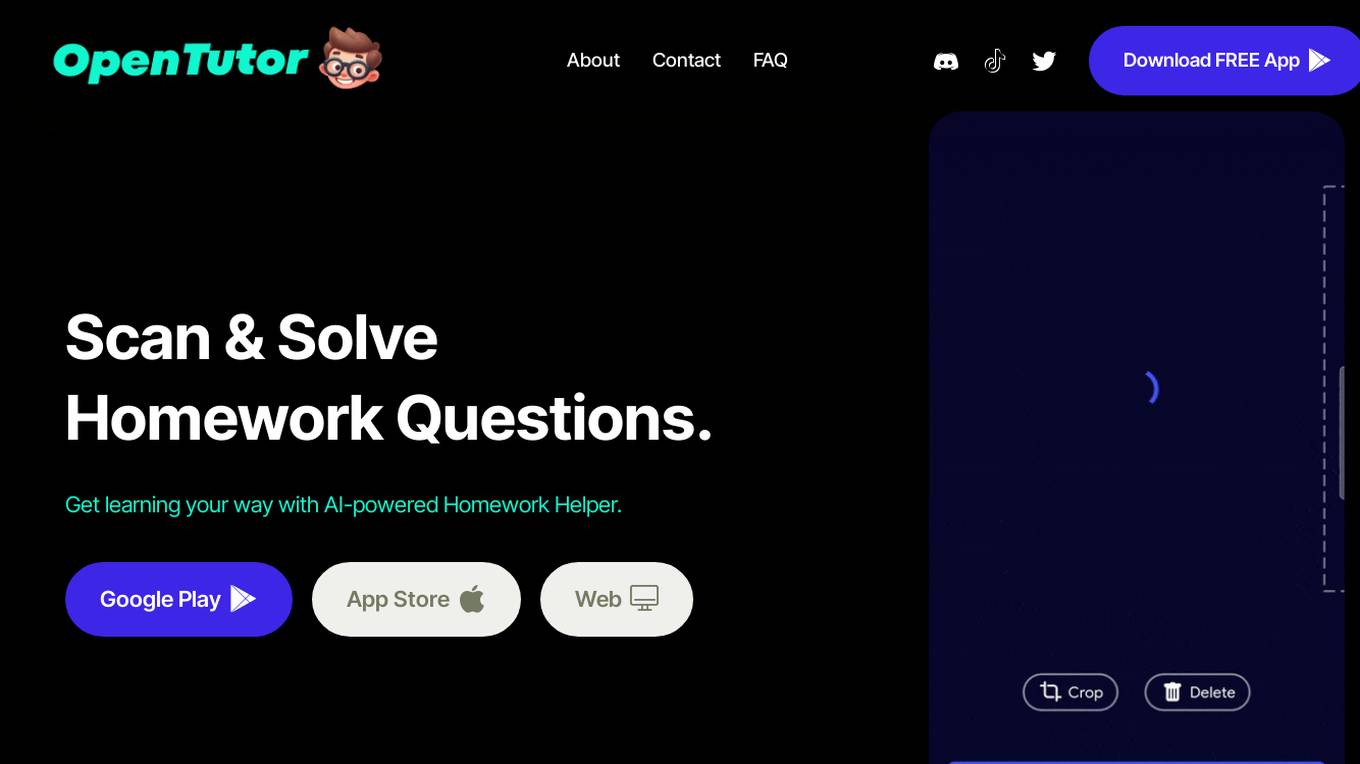
Open Tutor App
Open Tutor App is an AI-powered Homework Helper designed to assist students in solving homework questions efficiently. The app allows users to take a photo of their homework, which is then analyzed by AI to provide step-by-step solutions and explanations. With features like scanning and solving homework questions, Open Tutor App aims to enhance learning experiences and boost academic performance. The application is available for download on Google Play, App Store, and Web platforms.
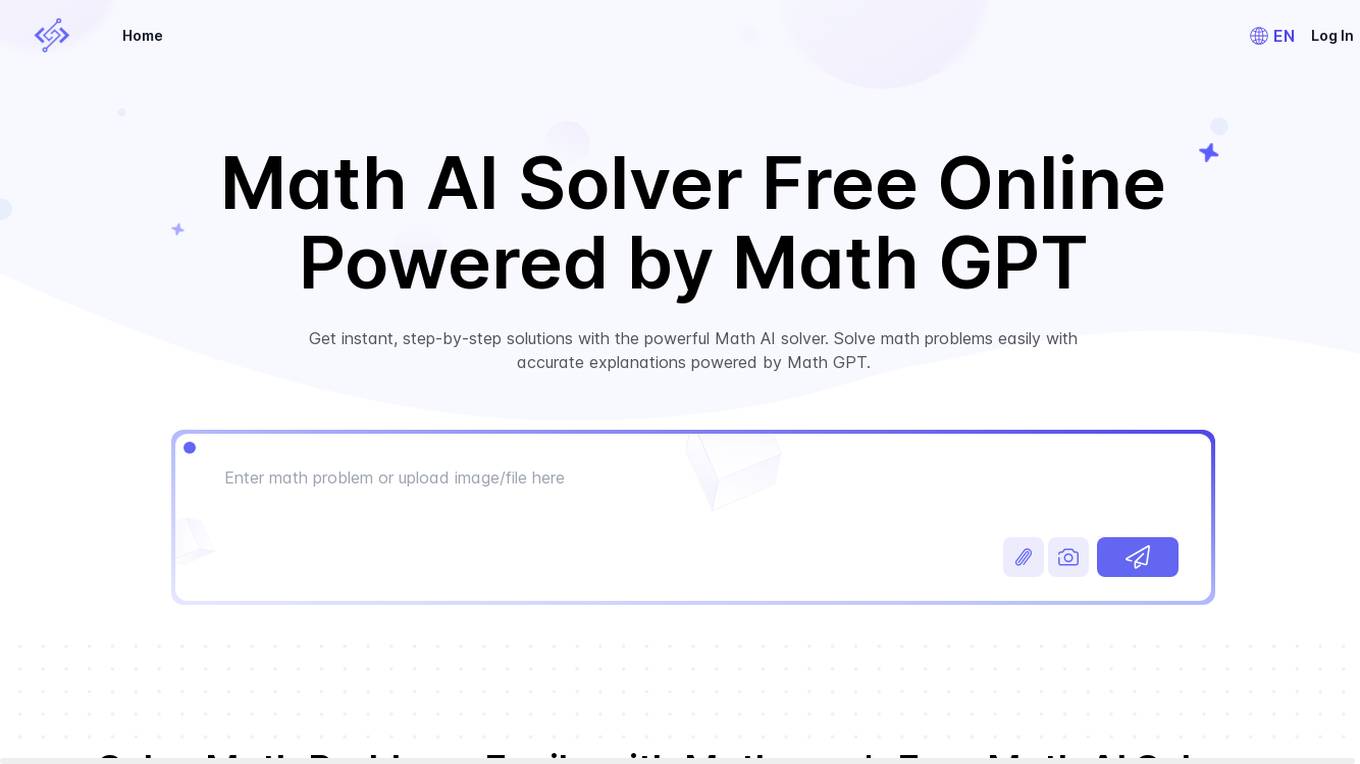
Math.now
Math.now is a free online math AI solver powered by Math GPT, offering instant, step-by-step solutions for a wide range of mathematical problems. Users can input math problems or upload photos for analysis, interact with the math AI bot for explanations, and receive real-time assistance. The application supports algebra, geometry, calculus, and word problems, providing detailed guidance and personalized learning experiences. Math.now's AI solver ensures accuracy, efficiency, and accessibility for students, educators, and self-learners.

Tame My Inbox
Tame My Inbox is an AI email assistant designed for Gmail users to tackle email overload effortlessly. The AI tool, IRIS, drafts replies in the user's voice, tracks email commitments, unsubscribes from newsletters, and organizes the Gmail inbox. With features like email triaging, reply drafting, meeting preparation, and time-saving capabilities, Tame My Inbox helps professionals save time and focus on important tasks. The application is powered by AI technology to enhance email management efficiency and productivity.

Meta AI
Meta AI is a research lab dedicated to advancing the field of artificial intelligence. Our mission is to build foundational AI technologies that will solve some of the world's biggest challenges, such as climate change, disease, and poverty.
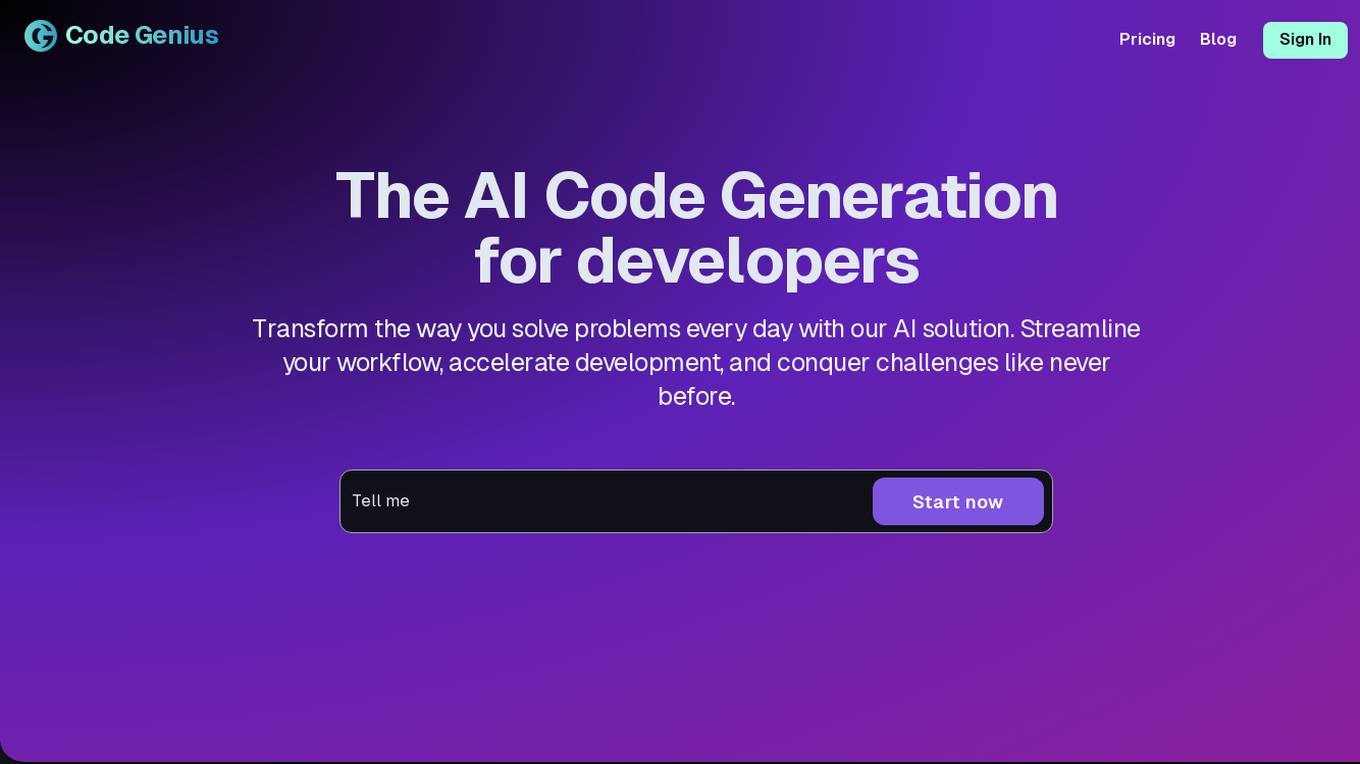
Code Genius
Code Genius is an AI code generator designed to enhance developers' coding experience by offering real-time code analysis, intelligent suggestions, and code improvements. It can generate unit tests, provide clear code documentation, and streamline workflow. The tool aims to optimize code, save time, and improve efficiency for developers worldwide.
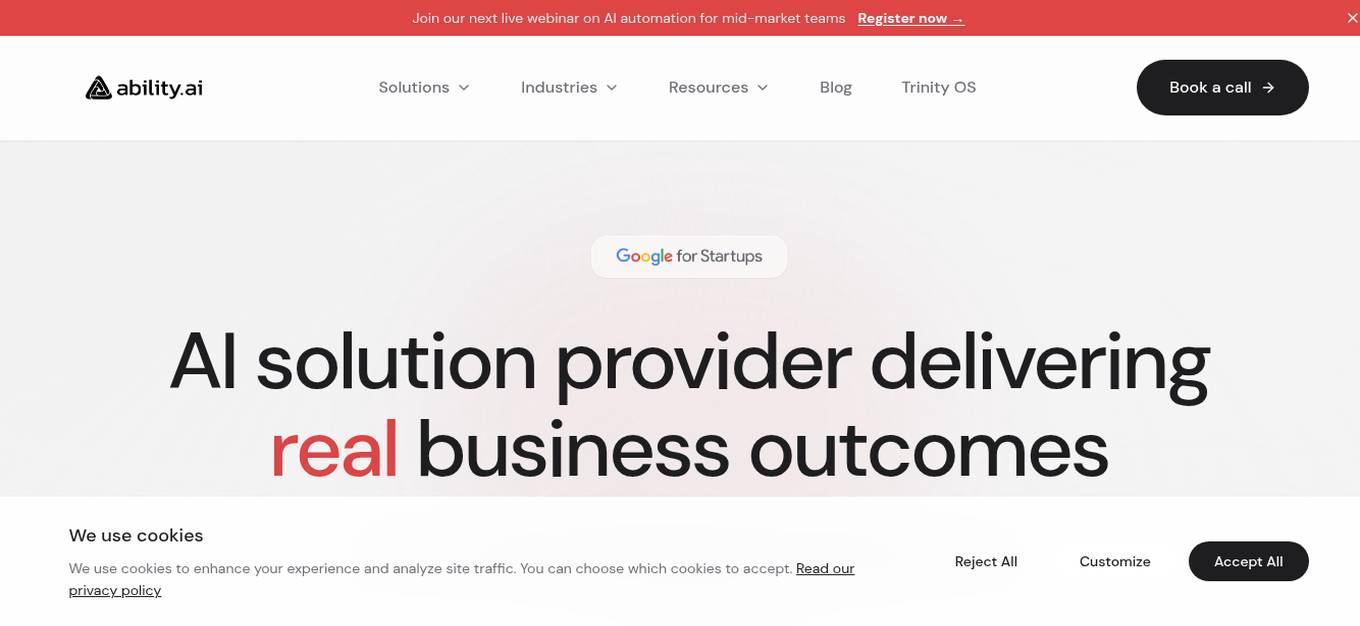
Ability.ai
Ability.ai is an AI solution provider for business automation, offering AI automation systems that solve specific problems for businesses across various functions such as support, sales, recruiting, marketing, finance, IT, development, and more. The platform integrates with existing tech stacks and business rules to automate tasks, update records, and close loops efficiently. Ability.ai focuses on delivering real business outcomes through AI automation, not just selling platforms, and provides solutions tailored to individual workflows and needs. The company emphasizes transparency, ownership, and customization, allowing users to control the system, data, and logic without subscriptions or lock-ins.
0 - Open Source AI Tools
20 - OpenAI Gpts
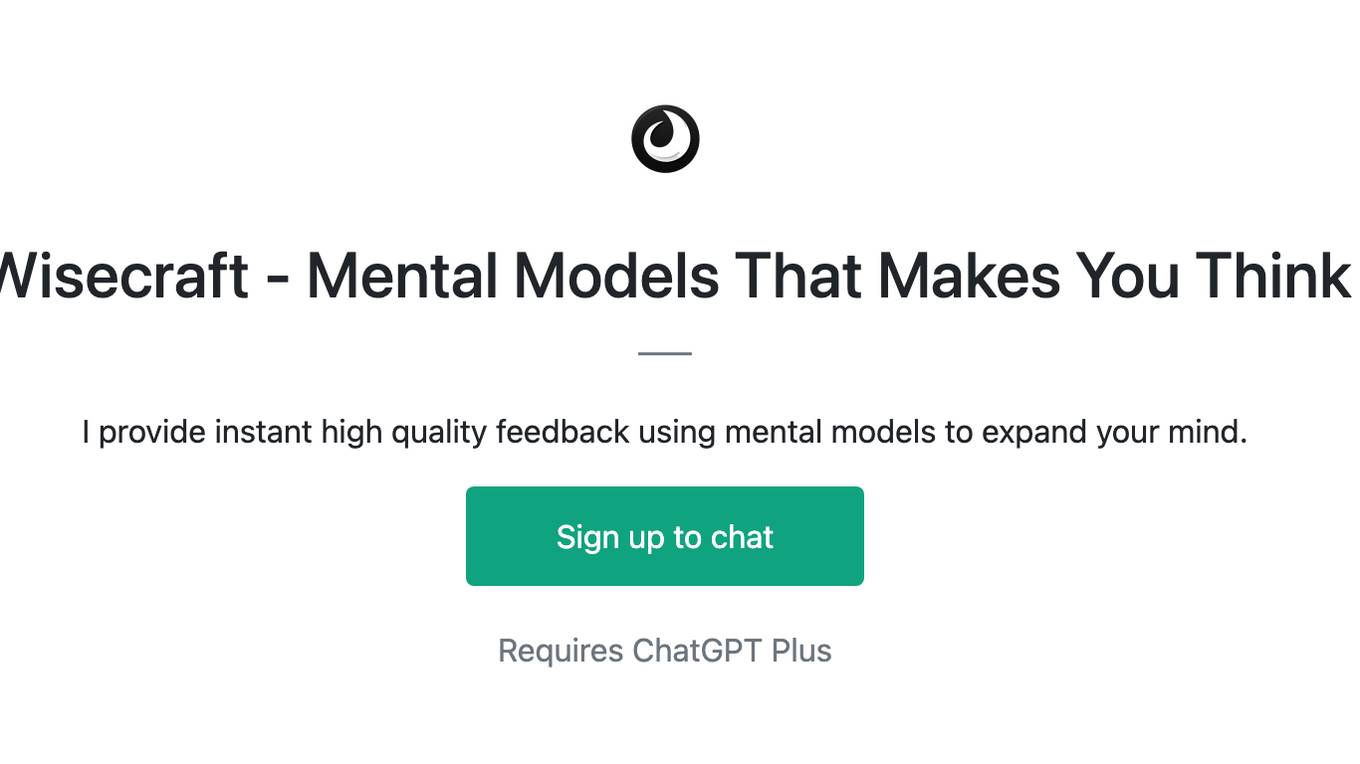
Wisecraft - Mental Models That Makes You Think
I provide instant high quality feedback using mental models to expand your mind.
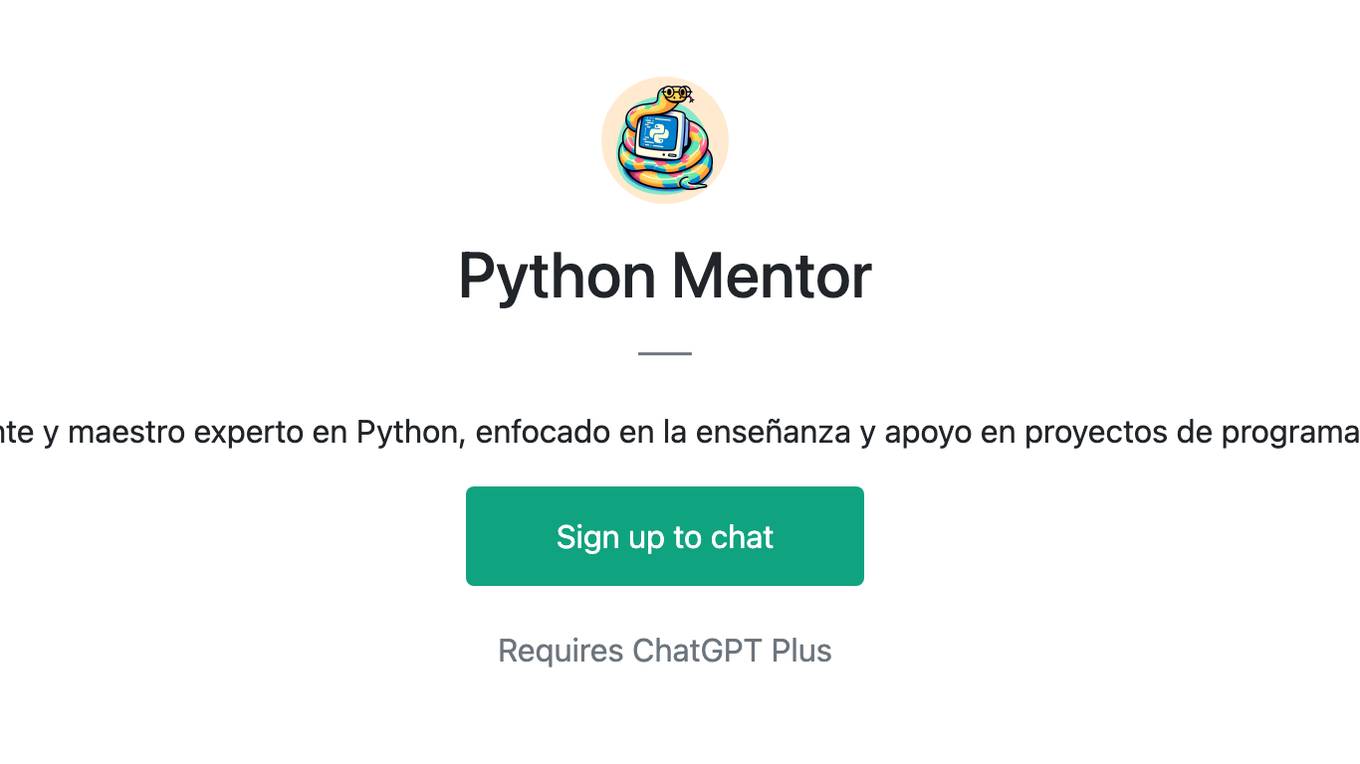
Python Mentor
Asistente y maestro experto en Python, enfocado en la enseñanza y apoyo en proyectos de programación.
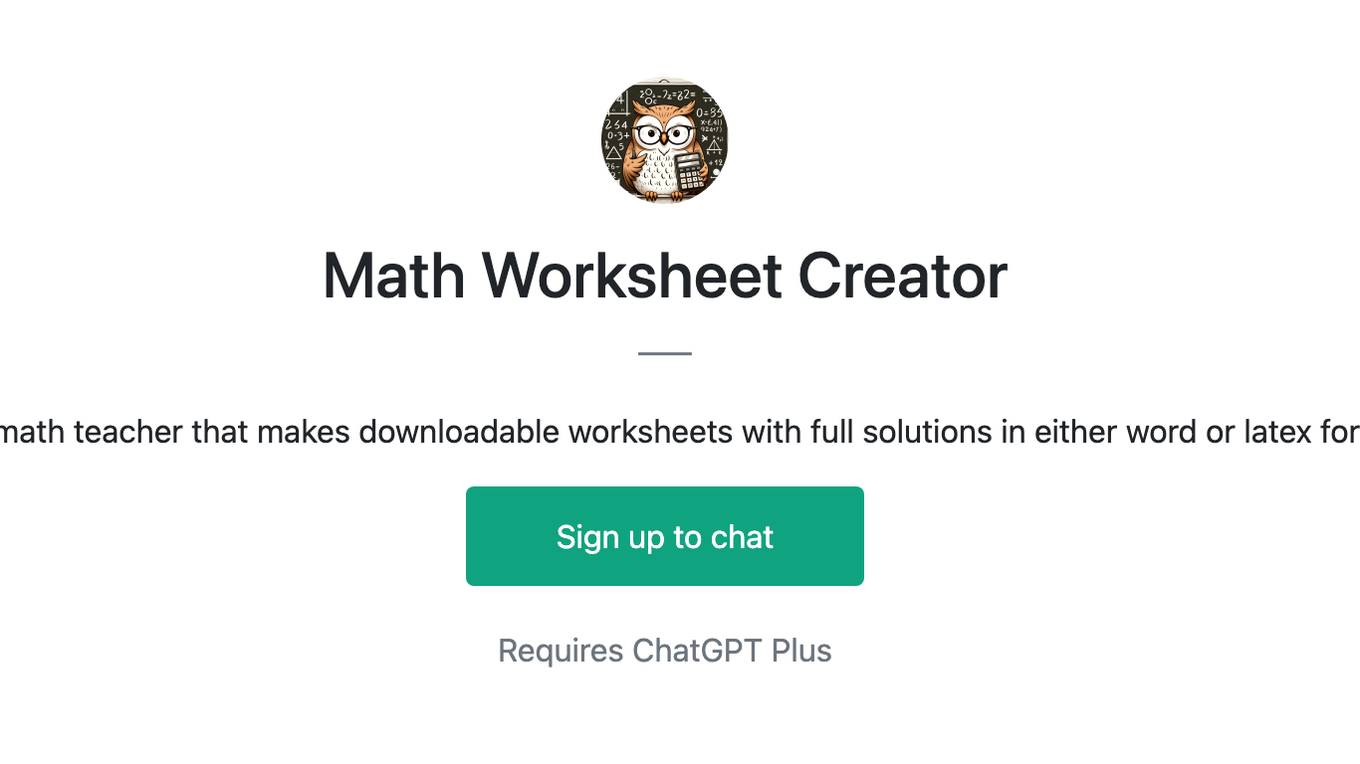
Math Worksheet Creator
Expert math teacher that makes downloadable worksheets with full solutions in either word or latex formats.
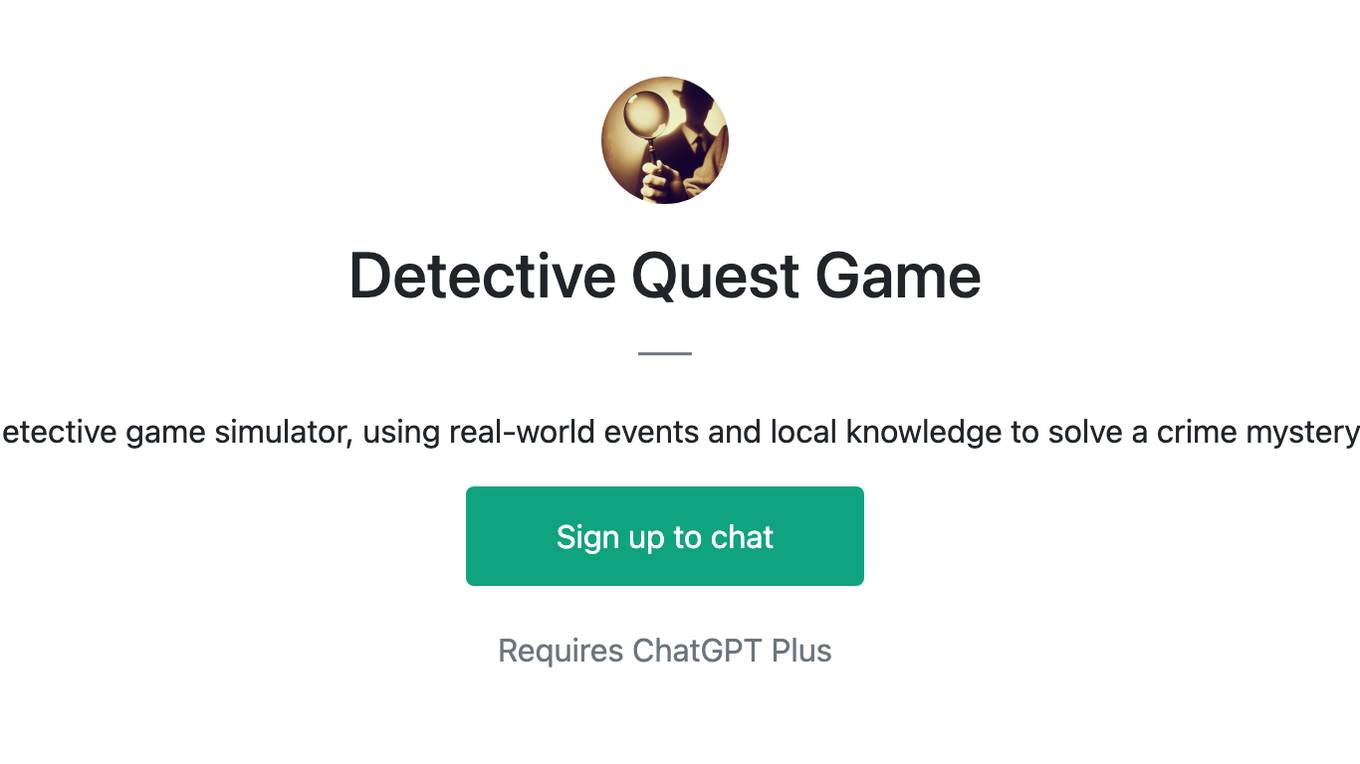
Detective Quest Game
A detective game simulator, using real-world events and local knowledge to solve a crime mystery..
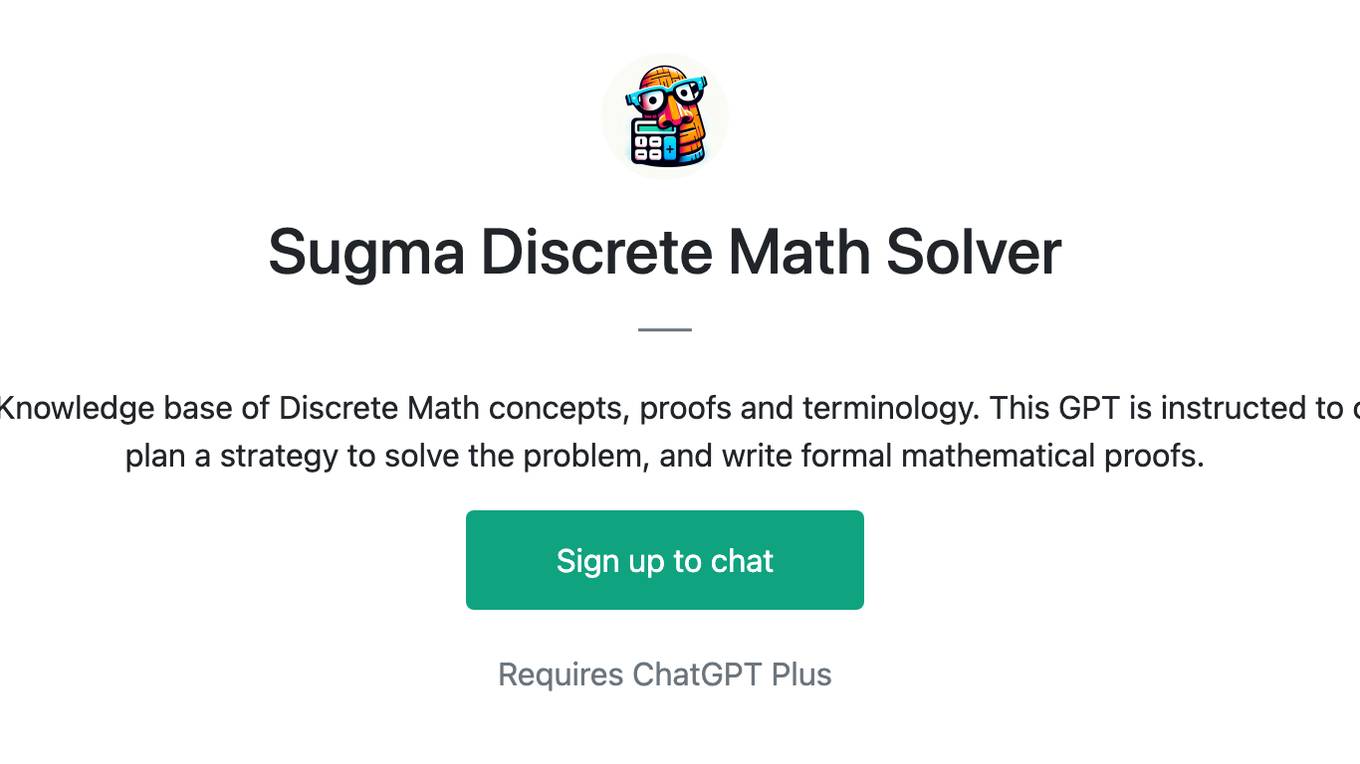
Sugma Discrete Math Solver
Powered by GPT-4 Turbo. 128,000 Tokens. Knowledge base of Discrete Math concepts, proofs and terminology. This GPT is instructed to carefully read and understand the prompt, plan a strategy to solve the problem, and write formal mathematical proofs.
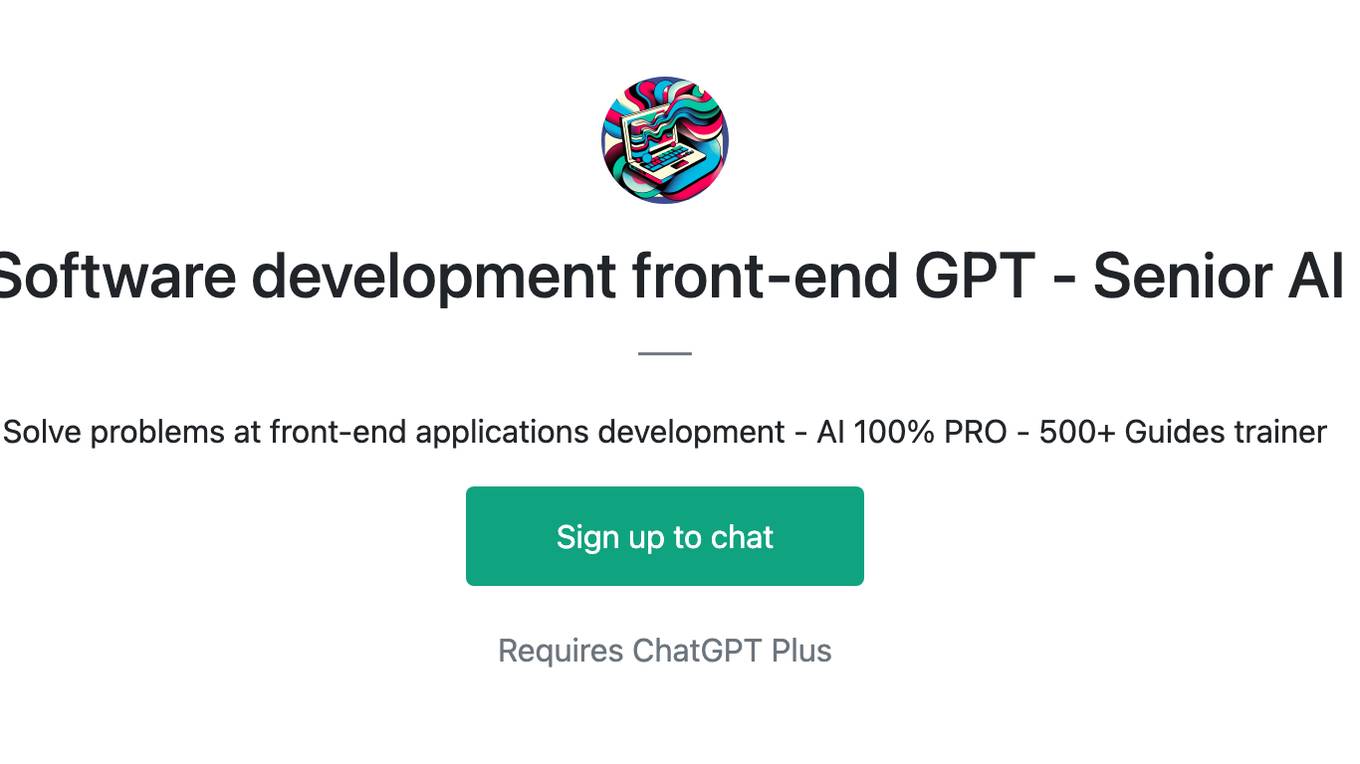
Software development front-end GPT - Senior AI
Solve problems at front-end applications development - AI 100% PRO - 500+ Guides trainer

SIK's TextGame Series
Take on 'Shadow's Secret,' a text-based role-playing game where you unravel the mysterious death of an artist with just 15 critical questions. Each inquiry brings you a step closer to the truth - can you solve the puzzle?
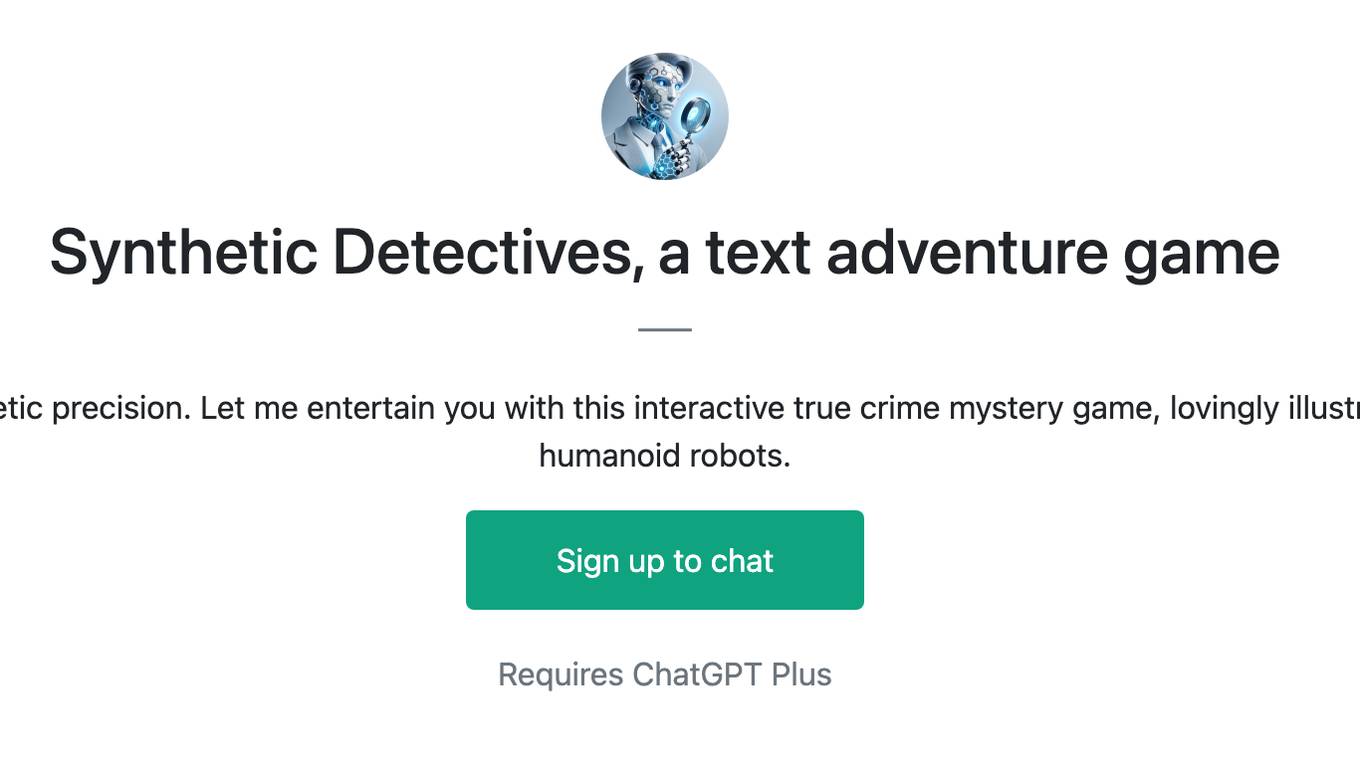
Synthetic Detectives, a text adventure game
AI powered sleuths solve crimes with synthetic precision. Let me entertain you with this interactive true crime mystery game, lovingly illustrated in the style of synthetic, AI-powered humanoid robots.

Anime Escapes, a text adventure game
Solve elegant puzzles in anime-inspired escape rooms. Let me entertain you with this interactive escape room game, lovingly illustrated in the style of elegant Shojo anime.

Riddle Brawl
Join Riddle Brawl! Solve image riddles, unlock the passphrases, and compete to become the ultimate Champion. Are you up for the challenge? Let's begin! 🕵️♂️
